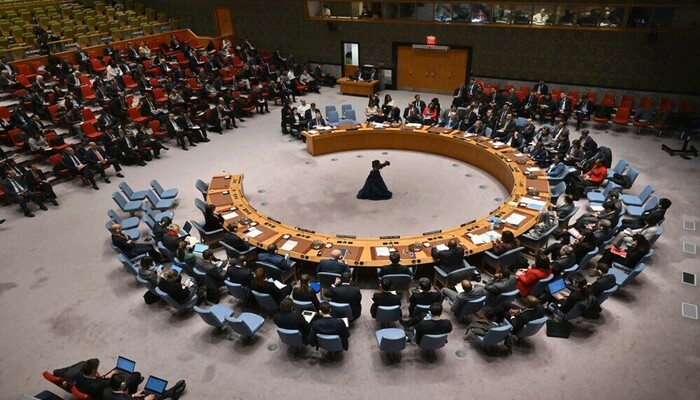The United Nations Security Council (UNSC) is set to hold an emergency session on Thursday to discuss Israel’s recent military strikes in Syria. The meeting, reportedly scheduled for Thursday afternoon (Eastern Time), was requested by Syria’s UN delegation and supported by Algeria, a non-permanent member of the UNSC, according to Anadolu and Reuters news agencies.
The urgent move comes in response to Israeli airstrikes that hit Syrian military targets, including the Syrian military headquarters in Damascus, which was reportedly captured live by Al Jazeera Arabic. These strikes mark a serious escalation in the ongoing tensions in the region, prompting renewed international focus.
Calls for Condemnation and Clashing Narratives
While the emergency session aims to address the escalating violence, Israel’s permanent representative to the United Nations, Danny Danon, has taken a defensive tone. In a statement quoted by Reuters, Danon said, “Israel will continue to act resolutely against any terrorist threat on its borders, anywhere and at any time.”
Danon also called on the Security Council to “condemn the barbaric crimes committed against innocent civilians on Syrian soil” — referring not to Israel’s actions but to the Assad-led government in Damascus. This deflection of criticism is consistent with Israel’s long-standing justification for cross-border operations, especially when it perceives threats near its borders.
However, Syria and its allies argue that the Israeli strikes are blatant violations of Syrian sovereignty and international law. Syria’s UN mission, backed by Algeria, hopes to use the UNSC platform to rally diplomatic condemnation and demand action against what it sees as acts of aggression.
BREAKING:
This is not Gaza.
This is not Beirut.
This is Damascus.
Israel is raining bombs on Syria’s capital, targeting civilian neighborhoods and government sites, in one of the oldest cities on Earth — a city that has stood for over 11,000 years. pic.twitter.com/7iPm4WwPZg
— sarah (@sahouraxo) July 16, 2025
Analysts Say Israel Sending Political Message
According to Mohammad Al Abdallah, executive director of the Syria Justice and Accountability Centre in Washington, the timing and nature of Israel’s attack go beyond military strategy. “Israel is trying to reinforce their leverage on Syria,” he told Al Jazeera, adding that the strikes are also directed at the Druze population, both in Israel and Syria.
Read more: Tsunami Warnings Canceled After Massive Earthquake Off Alaska
In recent weeks, tensions have increased after reports that some Israeli Druze crossed into Syria to support their ethnic kin fighting Syrian government forces. Analysts believe Prime Minister Benjamin Netanyahu may be leveraging the situation to send a domestic message as well, showing his Druze constituents that he stands by them politically and militarily.
“Netanyahu is also sending a message to the Druze of Israel that basically they can count on him and he can count on them on domestic political issues,” Al Abdallah added.
Additionally, Israel’s attacks aim to prevent Syria from militarizing border zones adjacent to Israeli territory, especially areas under the influence of Hezbollah and Iranian-backed militias.
Regional Tensions and Global Diplomacy
The UNSC emergency session on Israel’s strikes on Syria underscores growing concern among global powers about escalating conflict in the Middle East. These developments unfold as the region already reels from ongoing violence in Gaza, southern Lebanon, and the broader Israel-Hezbollah standoff.
In parallel developments, former US President Donald Trump, during a bill signing at the White House, hinted at positive developments in the Gaza ceasefire talks, thanking envoy Steve Witkoff and suggesting “good news” is on the way. Trump is expected to meet Qatari Prime Minister Sheikh Mohammed bin Abdulrahman Al Thani for further discussions.
While world leaders work toward reducing tensions in Gaza, the Syrian crisis presents a new layer of geopolitical complexity. With both Russia and the US holding veto powers in the Security Council, it remains uncertain whether Thursday’s session will produce any binding resolution.
Still, the fact that the UNSC emergency session on Israel’s strikes on Syria is happening at all signals that global stakeholders are alarmed by the recent military escalation and its potential to destabilize the region even further.
Follow us on Instagram, YouTube, Facebook,, X and TikTok for latest updates
